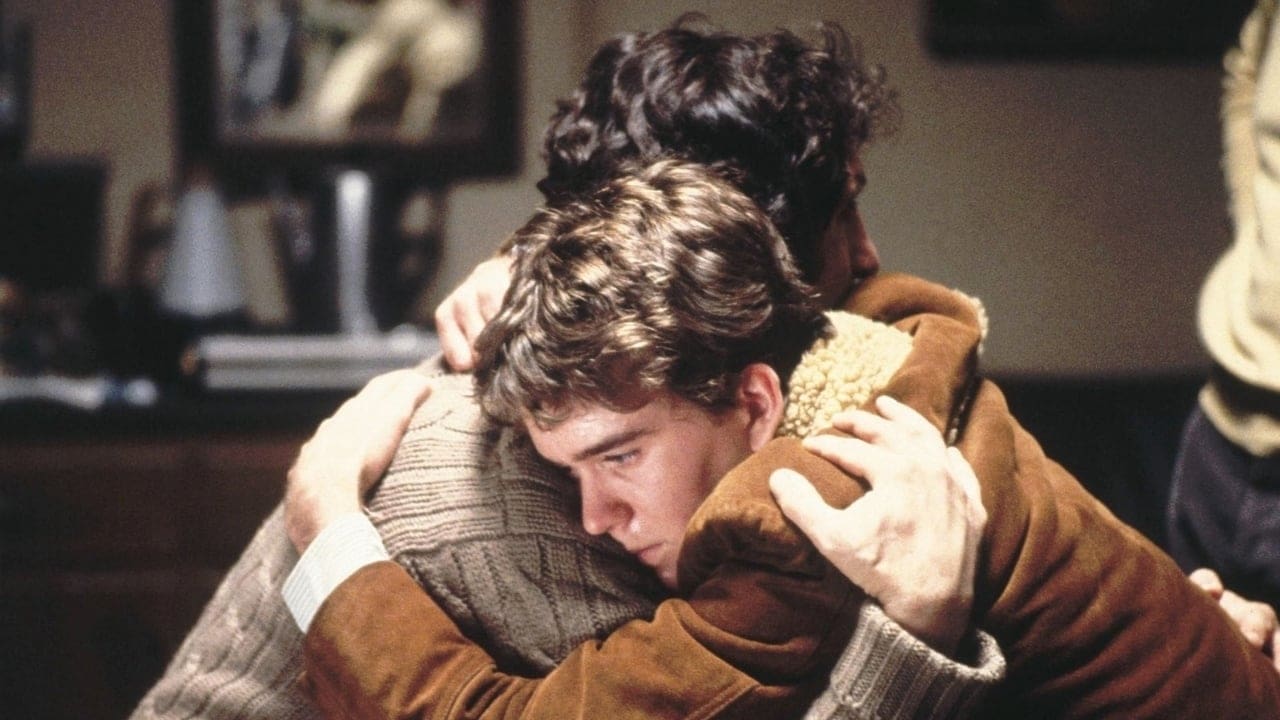Forty years ago, “Ordinary People” changed the way movies think about psychotherapy, grief, Oscar campaigning and Mary Tyler Moore. Not that any of that was new at the time. Even now the movie has a comfort food taste. Indeed, the vivid mainstream quality, the quiet ease with which “Ordinary People” asks viewers to relate to pain, now seems almost radical. It all makes you want to hum a few bars of Pachelbel’s “Canon in D.”
As an 11-year-old, I was obsessed with the film. I saw a kindred spirit in Conrad Jarrett (Timothy Hutton), the Chicago high school kid besieged with a suicidal case of survivor’s guilt after losing his older brother in a boating accident. I never lost a sibling, but my family was in shambles, and I readily blamed myself (because that’s what kids do). We weren’t rich, and we lived on the West Coast, not in the Midwest. It didn’t matter. Like the Jarretts, we lived in our own hell of resentment and recrimination. As the kid of the family, I absorbed it after it all rolled downhill. Even at that young age I was intuitively drawn to the film’s vision of family-as-war-zone.
I’m no actor, but I took two drama classes in my life, in junior high and high school, and I did an “Ordinary People” scene in each: the restaurant meeting between Conrad and Karen, his friend from the psych ward; and one of several scenes with Conrad and Dr. Berger (Judd Hirsch). I, of course, was Conrad. Always. There was something heroic about Hutton’s performance, the way he embodied Conrad’s ability to shoulder everything even as he was falling apart. By playing him in drama classes—my mother hammered out the scripts for me on an old typewriter—I was creating a sort of mutually re-enforcing feedback loop. Perhaps I needed some of Conrad’s strength for myself and this was how I thought I could acquire it.

Those therapy scenes between Conrad and Berger are still enough to make one pine for the perfect therapist—caring, a little caustic, patient, willing to tear down Conrad’s walls a bit at a time. The big therapy breakthrough in “Good Will Hunting” (“It’s Not Your Fault”) probably doesn’t happen without the denouement between Conrad and Berger (“I’m your friend”). Neither is terribly realistic, but both manage to jerk tears without excessive manipulation. “Ordinary People,” based on Judith Guest’s novel, does big emotions with exquisite touch.
As I watch now, I find my eye drifting away from Conrad (sorry dude) and toward his parents, Calvin (Donald Sutherland) and Beth (a revelatory Mary Tyler Moore). This is partially because I’m close to their age now. But there’s something else, something to do with grief, which I have now lived long enough to endure.
Married couples are hard pressed to stay together when they lose a child. Everyone grieves differently but usually the collective strain, the rage and pure anguish, hover in the air like a disease and drive an immovable wedge like an anvil. Moore in particular embodies this nightmare to chilling effect. As written, Beth is a terrible human being, unwilling to set Conrad free from his guilt (hell, she won’t even pose in a photograph with him). As acted by Moore, however, cast against type from her ebullient TV persona, Beth becomes a tragic figure. She does it all with a twitch of the mouth, or sagging shoulders, or a flicker of the eyes. She wordlessly reminds us that the apple of her eye is gone forever. Hutton and Redford won the big Oscars (Best Supporting Actor, Best Director), but in hindsight it’s Moore who gives the movie’s most vital contribution. The film is worth re-watching just for her performance.

So why did Hutton get shuffled into the supporting actor bracket come Oscar time? Robert De Niro’s frighteningly real performance as Jake LaMotta in “Raging Bull” made the Best Actor race a foregone conclusion. So “Ordinary People”‘s distributor, Paramount, did the smart thing. It pushed the 19-year-old Hutton, clearly the lead actor in the film, for Best Supporting Actor. There was nothing supporting about the performance, but at least he won (as did De Niro). “Ordinary People” also won Oscars for Best Picture, Best Director and Best Adapted Screenplay.
In its own intimate way, “Ordinary People” hits just as hard as LaMotta. I can’t think of a film that better illustrates how the blood can drain from an entire family. Again, my mind turns to Moore. Beth isn’t defiant; she’s broken, and she can’t even bring herself to discuss how she got that way. Near the end of the film, after Calvin tells her their marriage is all but over, Beth goes upstairs to pack. The façade is still up—until it suddenly isn’t. She gasps and shudders, as if she’s been punched. In a sense, she has. It’s a thankless role; instead of getting a long goodbye Beth exits in a cab, viewed from Conrad’s upstairs bedroom. She’s an afterthought. She deserved better.
As I watched the film recently, I started wondering how it might play today. Would it be too WASP-y? Would it catch flack for its sense of white privilege? (I don’t think there’s a non-white speaking part in the film). Would viewers have trouble warming up to a wealthy Chicago family wrapped in a hermetically sealed crisis? The world has changed a lot in the last 40 years. We expect … different.
Then again, that hermetic seal is among the film’s, and the family’s, defining traits. The Jarretts are contents under pressure. The film works so well by drawing out the detonation over the course of two finely chiseled hours. “Ordinary People” is Hollywood by way of Bergman, claustrophobic and quietly tortured, and, finally, after four decades, still quite beautiful.











